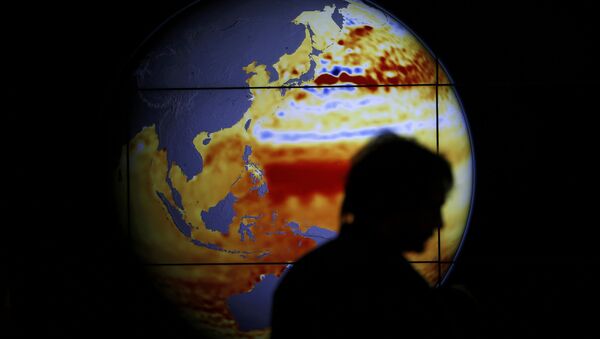In 2017, the Paris Agreement developed to carry out the United Nations Framework Convention on Climate Change and keep the increase in global average temperature to below 2° Celsius, entered into force. Despite the fact that the agreement did not set out any specific greenhouse gas emissions-related obligations for the participating countries, researchers have observed stabilisation of emissions from fossil fuel combustion and industrial processes since its implementation.
READ MORE: ‘The Science Is Clear': Canada Warming Up at Twice the Global Rate
Together, researchers from RANEPA and the WWF Climate and Energy Program analysed the list of possible reasons for this stabilization and learned that it was caused by switching from coal to gas, and by China and the US switching to renewable energy sources and nuclear generation.
A Profitable Decrease in Emissions
Researchers suggest that the main practical conclusion of their work is that stabilisation and a decrease in greenhouse gas emissions can be achieved without compromising economic growth.
"What we see here is a decoupling of economic growth and carbon dioxide emissions; however, we will continue observing a certain correlation between them for a long time," said Vladimir Potashnikov, a research fellow at RANEPA Center for Economic Modeling of Energy and Environment. "It is also evident that underdeveloped countries have a long way to go to achieve this result."
Researchers also noted that to date, China has already converted to a new development model that does not entail a significant increase in carbon dioxide emissions.
At the same time, there is a threat of a significant increase in greenhouse gas emissions in sub-Saharan Africa caused by the region's industrialisation and population growth, which is comparable with China's current population.
READ MORE: Earth is ‘In Midst of Mass Extinction', Sir David Attenborough Warns
The optimistic scenario of Russia's Energy Strategy to 2035 provides for 80 percent GDP growth with a 30-35 percent increase in electricity production and just a 13-16 percent increase in domestic fuel consumption. This, in a way, also suggests a decoupling.
Necessary Measures
Scientists believe that in order to increase the economy's energy efficiency and decrease greenhouse gas emissions, a set of measures has to be adopted first.
"Today, the cost of solar and wind generated electricity is going down; at the international level, it may be even cheaper than fossil fuel energy," Potashnikov says. "The introduction of renewable energy sources should bring fossil fuel consumption down. Outdated production and generating capacities should eventually be replaced with more energy efficient technology or be upgraded. This should also lead to a decrease in energy intensity in the GDP."
"The stabilisation of emissions does not imply a decrease," the scientist concluded. "It is more likely that global emissions will be around the same level until 2030. Thus, forecasts of global dynamics, where the average temperature increase from 1850-1900 levels will be about 3° Celsius by 2100, and not less than 2° Celsius, which corresponds to the long-term objectives of the Paris Agreement, remains valid."



